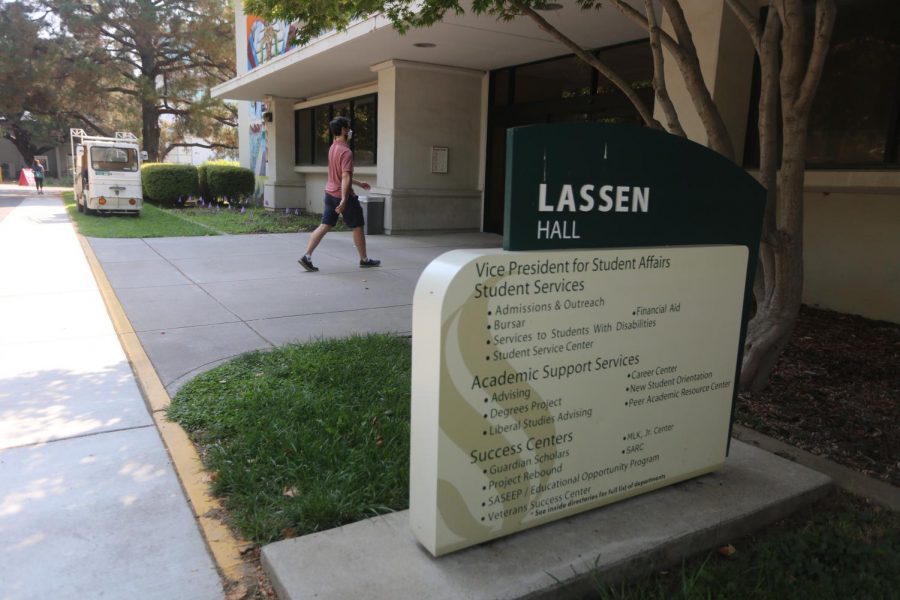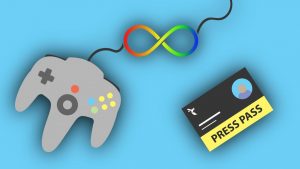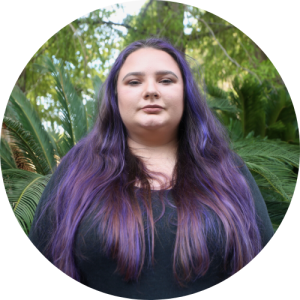Sac State’s Services for Students with Disabilities transitions to campus
Paperless program accommodates the fall 2021 semester
The Services for Students with Disabilities (SSWD) office is located in Lassen Hall with students entering and exiting. SSWD has set up a computer lab where staff are helping disabled students familiarize with the new Clockwork program for the SSWD Portal — no longer needing their all-paper format.
September 15, 2021
Nick Butler, technology coordinator with Services for Students with Disabilities at Sacramento State, walked into his office to check mail over the summer when he stumbled upon filing cabinets upon cabinets.
He made it clear to everyone to dump all pens, papers, and folders because SSWD was making a huge transition from all-paper to all-online — no longer needing paper, files, office supplies, and filing cabinets.
All of this was no longer relevant because SSWD had switched from a paper-based system to fully online thanks to Clockwork, an online software that converts paper documents into online forms.
“Our cabinets sit bare because Clockwork has taken care of all of that,” Butler said.
Clockwork’s primary function will be handling documents for student accommodations. SSWD services include providing academic resources to students with disabilities to ensure there is equal footing for students in their individual learning environments. This is done through the process of receiving accommodations.
“It’s important to understand that accommodations are there to ensure students have equal access to the learning environment.” said Rahsaan Ellison-Johnson, SSWD associate director.
A student’s request for accommodations is reviewed by an access coordinator to see what the student’s functional limitations are. Overall, SSWD sets these accommodations to address specific functional limitations a student might experience.
Ellison-Johnson said SSWD gathered the information through a few sources: a student’s self-report and provided documentation from their medical provider. Then, SSWD combines that information to get a clearer sense of the exact accommodations a student needs and approves those accommodations.
Dr. Mary Lee Vance, director of SSWD, clarifies that the academic accommodations would include in-class accommodations, internships, and field work.
“Whatever else [the student] might need, the accommodation will be academically related to the program,” Vance said.
Before Clockwork, students with disabilities would come into the SSWD office, drop off paperwork from their medical provider, pick up their accommodation letter and deliver that letter to the professor in order to receive academic accommodations.
These accommodations generally consist of time and half on exams, access to PowerPoint slides in advance and note taking assistance, according to Vance. These resources are offered so students with disabilities can have an equal academic footing compared to their non-disabled peers.
But with the new switch to Clockwork, students and faculty have access to an online portal for all accommodation needs. Students do their first intake with disability services online, and once they meet with access coordinators, they can request accommodations per class and request tests.
Butler said everything is web based and SSWD has had their eyes on Clockwork since before the pandemic, as SSWD used the service to unify their testing center, administrative office, and accessibility technology lab.
“We knew that our [old] process was a barrier to accessibility because they were all operating like separate little entities,” he said.
Alex Wright, a student majoring in computer science and art new media, enjoys the new online-based system and being able to electronically request accommodations to professors.
“You don’t have to go back and see SSWD each semester,” Wright said. “It’s automatically set up and sent. All you have to do is press a button. It’s very helpful because it makes sure that we all get what we need faster.”
Wright also experienced conflict with a professor not giving him accommodations at the beginning of the semester. Wright was happy to report that SSWD was quick to intervene and help the student get his accommodations.
Since the Clockwork program is new to SSWD, there have been minor setbacks. Butler said with the implementation of any software there will be hiccups. One hiccup includes a student missing emails about the new paperless process and location of their accommodation letters.
But, for students who could be overwhelmed by this new system, SSWD has made sure to keep them in mind. By setting up a computer lab in the main office, students are welcome to come in and familiarize themselves with the new system with help from staff on standby.
“Students can come in, sit down with staff standing over their shoulder and familiarize them with using Clockwork,” Butler said. “Then they don’t have to make that trip the next time.”
Wright does think Clockwork can be improved upon and recommends having accommodation letters sent as soon as a student enrolls in a class rather than pressing a button to request the letter on SSWD’s portal. Wright said that utilizing the program’s automation shows disability services are providing resources the best they can.
Overall during the pandemic, Vance said the transition to online and in person this semester for disabled students has been smooth, calling the mix of class modalities the “perfect blend.” But as classes transition, being predominantly face-to-face might be a challenge for students who benefit from online-only learning.
“It’ll be more challenging again when we go back to being totally face-to-face because that is the design for Sac State,” Vance said.“We are a face-to-face campus, and then students who have gotten accustomed to being able to do asynchronous and online curriculum start finding more challenges.”
Butler says he realizes students can be hesitant when approaching disability services but encourages students to not be afraid. Instead, come in and feel comfortable to ask any question.
“We want people to feel welcome because if they aren’t welcomed anywhere else on campus, they will be in our office,” he said.






































































































































